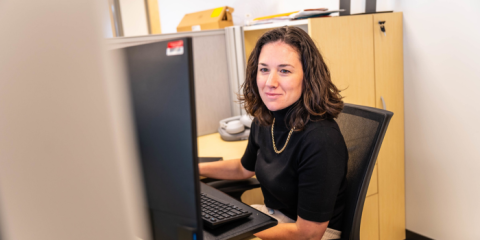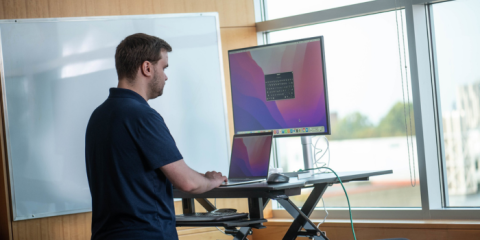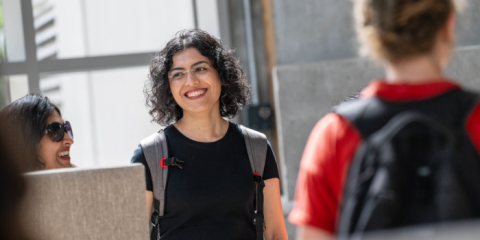The Centre for Workplace Accessibility (CWA) is a hub for resources, tools, and programs that help remove barriers for faculty and staff with disabilities or ongoing medical conditions.
We offer support to improve workplace accessibility using a trauma-informed, person-centred approach. Our initiatives also include projects and workshops designed to build disability inclusion literacy throughout the UBC community.
Every case is unique, and our aim is to listen to your specific needs and explore options for you to choose from. We will offer information, services, tools and resources to help make your workplace more accessible.
Our services
Examples of ways we can help
In addition to the services outlined above, we can also help with the following:
- Computer accessibility training: we can assist you with computer accessibility training (e.g. how to enable captions outside of zoom and teams calls, options for email optimization, how to maximize the use of task planning tools available at UBC, how to use read aloud functions for those wishing to minimize screen time, and more).
- Accessible communication and technology: we can provide information and options for American Sign Language (ASL) interpretation, voice to text, and screen-reading software, and more.
- Workplace Accommodations Plan: we can work with you to create a formal Workplace Accommodations Plan with the help of our Stay at Work / Return to Work team.
- Job Demands and Accommodation Planning Tool (JDAPT): we can guide you through the JDAPT tool for a customized look at your specific workplace tasks so that you can get a personalized list of ideas for accessibility and accommodations.
- Accessible parking: we can assist with setting up accessible parking at the UBC campus for faculty and staff with disabilities or medical conditions.
What to expect after contacting the CWA
- We will get in touch within 2 business days to book a confidential meeting with you.
- Meetings can take place virtually (Teams or Zoom), by phone, in-person, or by text/chat. Let us know your preference.
- During our initial conversation, we will discuss your goals and explore options and resources.
- We’ll take your lead in planning the next steps. Our conversation is confidential and we will only involve others in the process with your consent.
Resources
Background
Informed by UBC’s Inclusion Action Plan, conversations with community members, and employment equity data, the CWA will enhance support for disabled staff and faculty and build disability inclusion literacy in the UBC community.
Language
Individuals and groups may have different views of the meaning and significance of disability in their lives. The use of language is personal choice. Some may prefer person-first, or “person with a disability”. Person-first language is a way to emphasize the person rather than the disability. Other community members may prefer identity-first, or “disabled person”. Identity-first language highlights the importance of disability as a social, cultural, and political identity, rather than simply a medical or pathological condition.
Other language and identification choices may centre around the specific type of disability, such as “neurodiverse/neurodivergent” and can be either person-first or identity first. Certain groups who do not identify with having a disability may still benefit from engaging with the CWA, such as Deaf people.
When working with you, the CWA will take your lead and use your preferred language. On our website and any other publications, the CWA will use both person-first and identify-first language in order to respect as many preferences as possible.
Contact Us
To request a consultation with a Workplace Accessibility Specialist, fill out the Consultation Request Form. We will reach out to you and set up our first conversation within 2 business days.
If you'd like to get in touch with an inquiry, you may also email or phone us.
Email: workplace.accessibility@ubc.ca
Phone: 604-822-8139
Address:
6th floor, TEF 3
604 – 6190 Agronomy Road
Vancouver, BC Canada
V6T 1Z3
Office hours:
Monday–Friday | 8:30 am–4:30 pm
Student support
If you’re a student or a student employee looking for accessibility support, contact the Centre for Accessibility (UBCV) or the Disability Resource Centre (UBCO).





